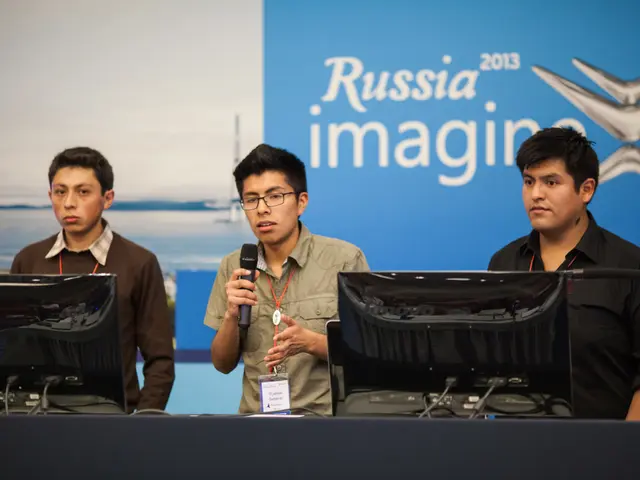IT Service Provider Infrastructure Under Attack by Sophisticated Hackers - Complaints from BSI Head
Germany's Top Cybersecurity Authority Warns of Sophisticated Attacks on IT Service Providers
Germany's Federal Office for Information Security (BSI) is calling for increased investments in IT security, highlighting the rising threat of well-planned cyber attacks on IT service providers. According to BSI's president, Claudia Plattner, these attacks have been strategically intricate.
Plattner is particularly concerned about the security of power plants and power grids in Germany. She insists that power suppliers and grid operators, as well as private households, must be adequately protected against cyber attacks. As the country moves towards a more decentralized energy supply, Plattner warns that small power plants and wind farms may prove vulnerable to external attackers, who stand to benefit from a broader attack surface.
In light of a major power outage on the Iberian Peninsula, Plattner affirmed that Germany's power grid is currently safe and stable. Despite this assurance, she stresses the need for continued investment in IT security, acknowledging that more must be done to safeguard critical infrastructure.
Plattner's concerns about the sophistication of attacks echo the activities of cybercriminals linked to Russian military intelligence, such as APT-28. These entities are thought to be involved in strategic, preparation-driven cyber intrusions that extend beyond espionage or data theft. Instead, they aim to weaken a country's capacity to respond during a crisis by asserting a presence within critical infrastructure.
In addition, the use of IP cameras by Russian attackers for espionage purposes has been raised as a concern. This tactic underscores the potential for seemingly secure devices to be exploited for covert purposes, thereby underscoring the need for increased vigilance in the realm of cybersecurity.
As the digitalization of energy supply continues, the threat landscape is set to evolve. Plattner advocates for robust security measures that can protect this modernization effort while minimizing potential disruptions. In the face of increasingly complex cyber attacks, Plattner's calls for greater investment in IT security seem ever more crucial.
The Commission, being part of the German political landscape, may also be involved in the preparation of draft laws, considering the current need to enhance cybersecurity, particularly in relation to the protection of the environment, as highlighted by the rising threats to energy infrastructure and the potential vulnerabilities in the digitalization of energy supply.
In the world of general-news, the focus is not only on the growing sophistication of cyber attacks on IT service providers, such as the one demonstrated by APT-28, but also on the increasing use of technology, such as IP cameras, for espionage purposes, highlighting the importance of integrating environmental, cybersecurity, and technology policies.








